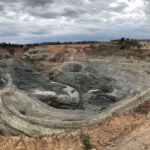THE United Arab Emirates International Resources Holdings (IRH) will invest $1.1 billion in Zambia’s Mopani Copper Mines in return for 51% ownership of the business, the state-owned ZCCM Investments Holdings (ZCCM-IH) said.
Last month, Zambia picked IRH, a unit of Abu Dhabi’s most valuable listed company, International Holdings Company (IHC), as the strategic equity partner in Mopani, which was coveted by several investors looking for copper assets.
Zambia had been seeking a new investor for Mopani since it took control of the assets from Glencore in 2021 after agreeing to pay the Swiss commodities company $1.5 billion in a deal funded by debt.
IRH’s $1.1 billion investment would be used to fund Mopani’s production expansion plan, provide working capital and pay off part of the $1.5 billion debt owed to previous owner Glencore, ZCCM-IH said in a statement.
“$620 million will be provided in the form of new equity capital in return for a 51% stake in MCM. Approximately $400 million will be provided as a shareholder loan … that will be used as part of the consideration to settle the original Glencore transaction debt of $1.5 billion-plus interest,” ZCCM-IH said.
An additional $80 million shareholder loan could also be advanced if needed, ZCCM-IH said.
Mopani requires $300 million to expand production to 200,000 metric tons of copper in the next three years. The miner produced 72,694 metric tons of copper in 2022, down from 87,618 metric tons in 2021.
In the half year to June 30, Mopani’s losses widened to 4.02 billion Zambian kwacha ($158.45 million) from 2.1 billion Zambian kwacha previously, due to lower output and higher expenses as well as increased borrowing costs.













